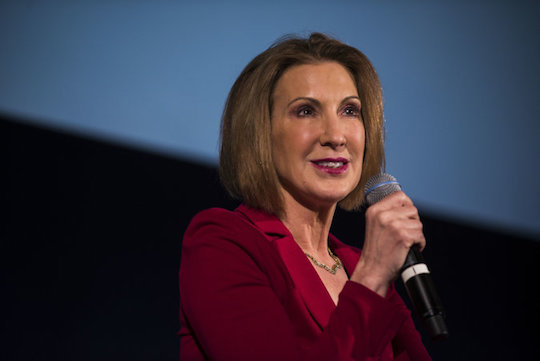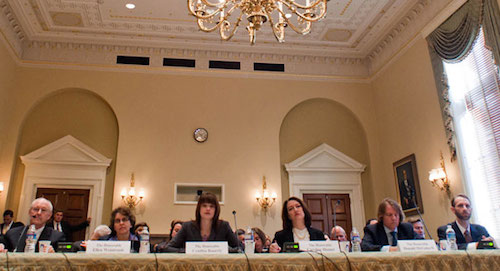According to the precedents set by Citizens United v. FEC, so-called super PACs can raise and spend unlimited amounts of money in support of presidential candidates, so long as they remain independent from their campaigns. The key word in the Supreme Court’s decision has become “coordination”: the super PAC cannot work with campaign organizers to direct how its money and volunteer hours are spent. In practice, “coordination” has become impossible to prove—partly because super PACs and candidates cynically twist the spirit of the law, and partly because the Federal Elections Commission has lost its ability to enforce its own rules. That’s why the super PAC Carly For America—which received a letter from the FEC saying its name could not include a candidate’s name—changed to CARLY. Problem solved.
Tag Archives: citizens united
This man who believes money is speech also has Tourette’s
Dan Backer is an activist for campaign finance reform who won McCutcheon v. FEC, the Supreme Court case that lifted aggregate limits on individual contributions to political campaigns. “Money in politics is great,” he told Marin Cogan of New York Magazine. “Restraints on political communication are fundamentally about protecting the status quo, and also about preventing people from having every bit of information they want to consume.”
Backer also has Tourette’s Syndrome. Showing remarkable restraint, Cogan puts this information in paragraph ten:
[Backer has] also helped organize the Stop Pelosi PAC and Stop R.E.I.D. PAC, and helps run the Conservative Action Fund, a tea-party group funded by Shaun McCutcheon. He is rarely the public face of these groups; Backer has Tourette’s syndrome, which causes facial tics and other TV-unfriendly gestures, like the tendency to gesture at you with both middle fingers as he’s speaking.
That’s a rich image. We often think of the claim that money can be speech as inherently disingenuous: you’d only believe that if someone paid you. The image of Backer delivering the Stockton heybuddy along with his argument must have been enormously tempting as a lead. Kudos to Cogan for not doing that, and for presenting Backer as someone who genuinely believes in his cause. I sure do disagree with him, though.
In poll, 85% favor big changes to campaign finance laws
In a New York Times/CBS poll released yesterday, respondents were split on the issue of campaign finance: 39% favored “fundamental changes” to the way elections are funded, while 46% said the system needed to be “completely rebuilt.” There is too much money in politics, and everyone but the Supreme Court seems to know it. Show me another issue on which 85% of Americans agree. While we’re at it, show me an issue that poses a greater existential threat to our democracy. Forget corruption and the appearance of corruption. When two thirds of respondents say the wealthy have a greater chance to influence elections than ordinary voters, they’re describing a crisis of faith in the American experiment.
FEC deadlocks neutralize campaign finance law
Earlier this year, the Federal Election Commission did not rule that candidates who provide B-roll footage to super PACs are are violating the prohibition against coordination set down in Citizens United v. FEC. The commission didn’t rule that such behavior is okay, either. It simply deadlocked, with three Democratic commissioners determining that exchanging footage constituted coordination, and three Republican commissioners determining that it didn’t. The tie meant that the FEC didn’t do anything and therefore operatively approved—something that’s been happening a a lot lately, according to the New York Times.
Supreme Court strikes down contribution limit
The Supreme Court ruled on McCutcheon v. FEC this morning, and American campaign finance restrictions got a little bit looser. I know what you’re thinking: finally, money can play some kind of role in electoral politics. In a 5-4 decision, the court overturned the individual aggregate limit on contributions to political parties, so you no longer need content yourself with donating a scant $48,000 to candidates every two years and $74,600 to party committees. Individuals can now give the parties of their choice as much money as they damn well please. As Chief Justice John Roberts put it, “there is no right in our democracy more basic than the right to participate in electing our political leaders.”





